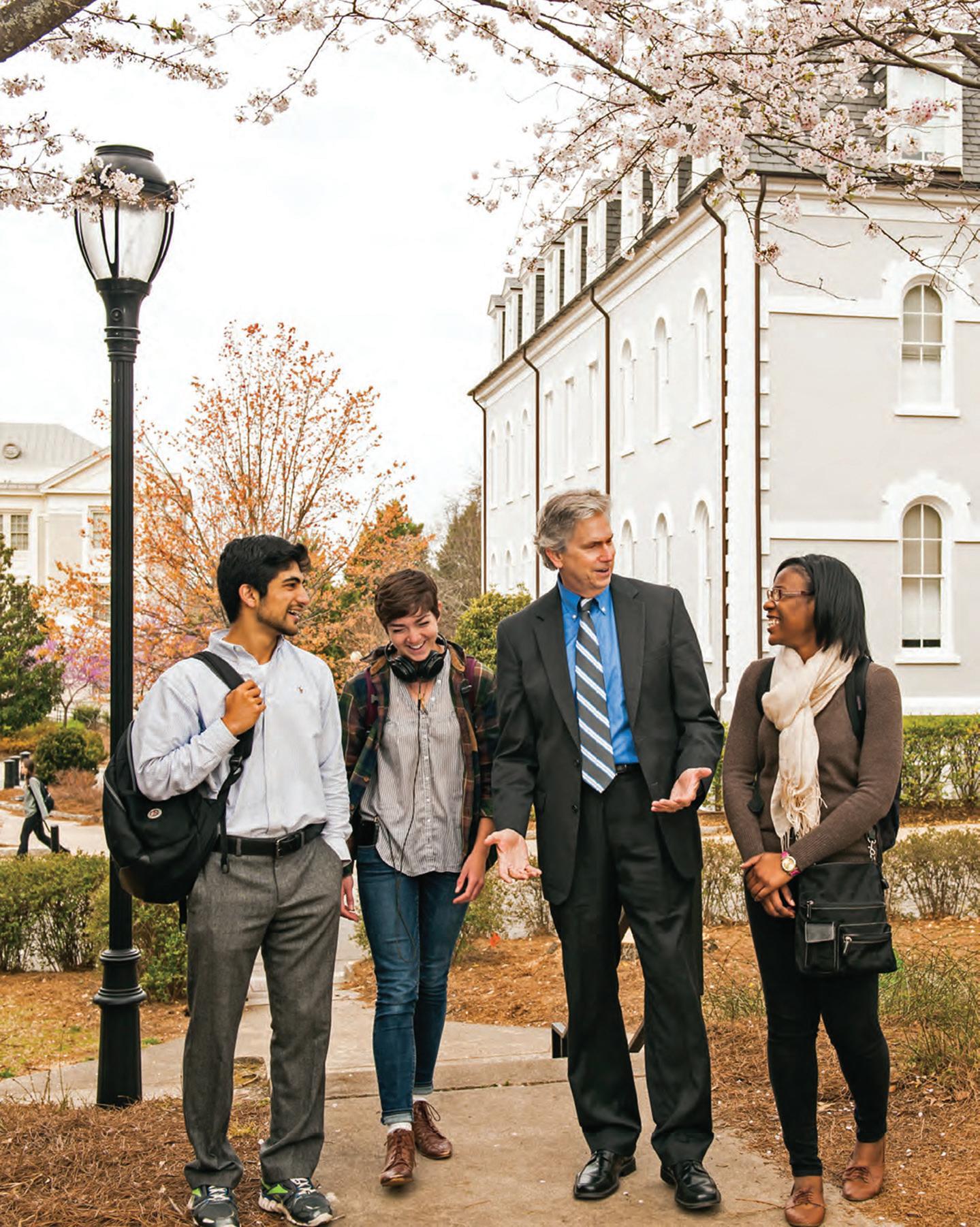
4 minute read
Q&A with David S. Williams
Dr. David S. Williams, Associate Provost and Director of the Honors Program, discusses topics ranging from his own past association with the Honors Program to today’s successes and tomorrow’s challenges.
You are now in your 16th year as director of the Honors Program, and you are the first person in your role to have been an Honors student at UGA yourself. What has changed since you were a student?
I guess first I’d like to point out what has stayed the same. When I was introduced to the Honors Program in the 1970s as a high schooler from Marietta, I was told that it could offer me the chance to tailor my student experience and personalize it through individualized advising and meaningful contact with stellar faculty members in small classes, as well as the ability to meet and interact with fellow students who were similarly academically driven. These things no doubt still remain at the heart of our program.
I think that what has changed the most is that we now offer such a broad array of opportunities beyond the classroom to a much larger number of students—from the 800 or so of my day to our current number of around 2,500. I should also add that we have moved locations since my student days from the Holmes-Hunter Academic Building to the current home of the Honors Program, the Moore College building, which was renovated and rededicated for the Honors Program in 2001. Every day when I walk in, I am still struck by how beautiful our campus setting is—on North Campus, next to Herty Field and the Chapel Bell, and across the street from the quintessential college-town— it just looks to me like how college is supposed to look.
You just mentioned that the Honors Program offers a broad array of opportunities. What specifically would you point to or single out?
I should start by saying that we helped to pioneer a number of programs that are now known as experiential learning opportunities, which are available to all undergraduates at UGA. For example, the highly popular Double Dawgs initiative, which allows students to earn concurrent undergraduate and master’s degrees, started as the Honors Combined Degree Program. The Honors Program also provides campus-wide leadership with regard to undergraduate research through CURO—the Center for Undergraduate Research Opportunities— which was started to serve Honors students but is now available to all undergraduate students at UGA, regardless of their Honors status. I am very pleased that UGA stands virtually alone in the nation in facilitating faculty-mentored undergraduate research in any academic discipline for up to four years. That speaks to the quality of our students as well as the commitment of our faculty.
Beyond these sorts of programs, there are a number of Honors-specific opportunities, such as focused Honors internships in Savannah; Washington, D.C.; and New York City, as well as the Honors International Scholars Program, which supplies funding that can be used for a range of purposes such as traditional university-sponsored study abroad programs, university exchanges, and language institutes. Each of these programs sponsors and supports Honors students every year— especially during the summers. Just to mention a few more areas of emphasis, we also have thriving civic engagement and mentoring programs as well as enrichment programming such as Book Discussions and alumni and faculty lectures.
All of these opportunities add up. As but one example, over the past 25 years, UGA has had more Rhodes Scholars—the top academic scholarship in the world—than all but two other public universities, and all of our recipients have been Honors students. That’s a leading indicator of the kinds of success that we see our students accomplish each and every year, whether they head next to a professional or graduate school, or to start their career.
How is the Honors Program able to offer so much to its students?
Without question, it all begins with the amazing Honors students themselves and the dedicated faculty and staff members who work with them. On the one hand, you have people with enormous potential, and on the other they are served by people who are positioned to help bring that potential to fruition. But we could not deliver on what we promise—to help our students not only to meet, but to exceed their dreams—without the assistance of our many alumni and friends. Their connections, advice, and financial support make everything possible.
As you look ahead, what does the future hold?
We in the Honors Program are committed to the proposition that a diverse student body is a better student body. Diversity of background, identity, and opinion fosters enriched discussion and experiences. So as we look ahead we need to do all we can to attract and support an ever more diverse group of students and provide greater access to our programming.
Any final thoughts about the 60th anniversary of the UGA Honors Program?
Yes. This program has obviously meant so much to me personally and professionally. From being an Honors student myself, to teaching Honors courses after I earned my Ph.D. and joined the UGA faculty in 1989, to having the incredible privilege to serve in my position, and to have had the chance to get to know such remarkable and impressive people over the years— it’s just all been so enriching and rewarding. I am fond of saying that the best illustration I know of that “it takes a village” is the UGA Honors Program. So many wonderful people have been associated with it for so many years and have done so much to build and sustain it over these 60 years. Let’s keep it going!

In 2018, David S. Williams flips and serves chocolate chip pancakes to Honors students at Flipping Out Over Finals, an annual event hosted by the Honors Program Student Council in Myers Hall each December.
Stephanie Schupska

Williams addresses first-year Honors students at the Fall 2018 Convocation ceremony.
Stephanie Schupska



